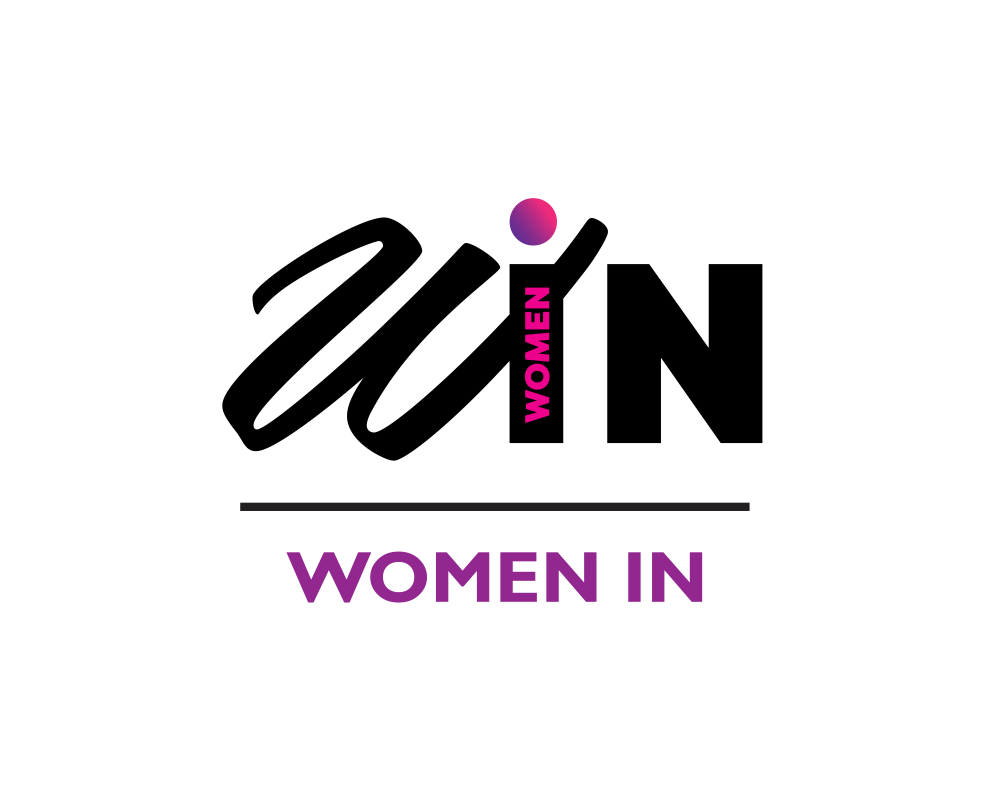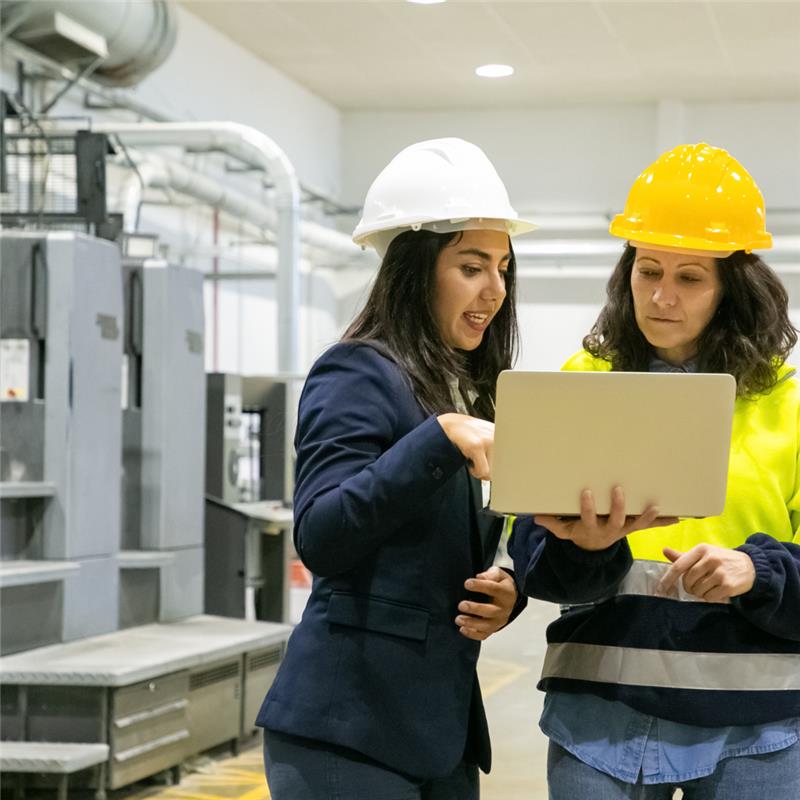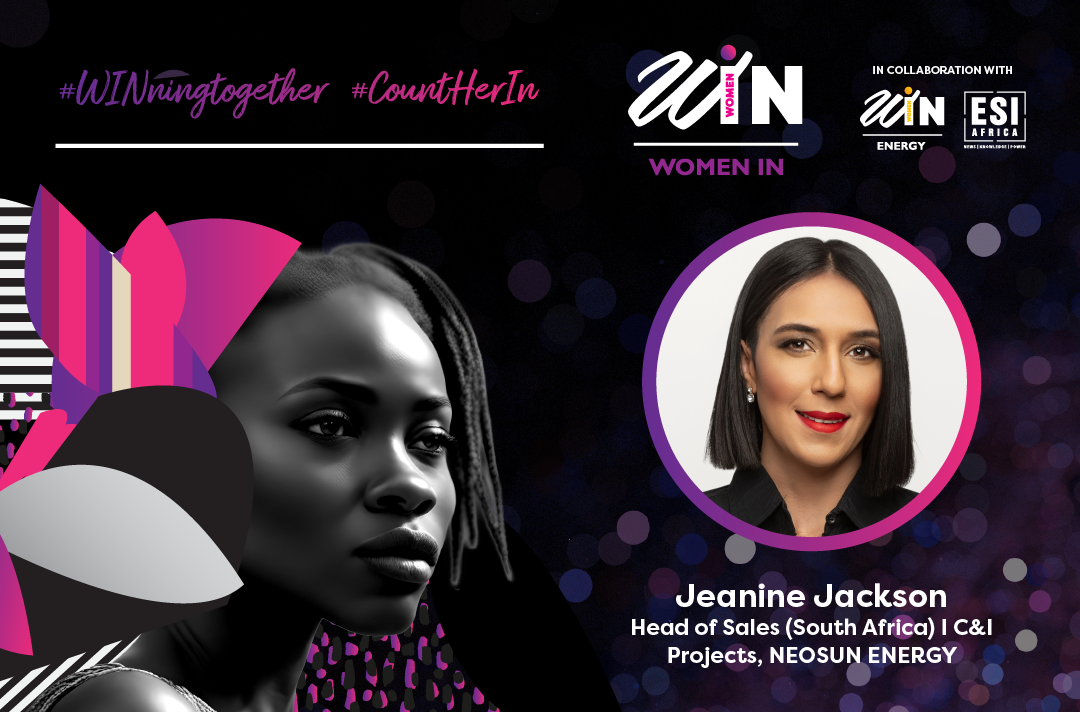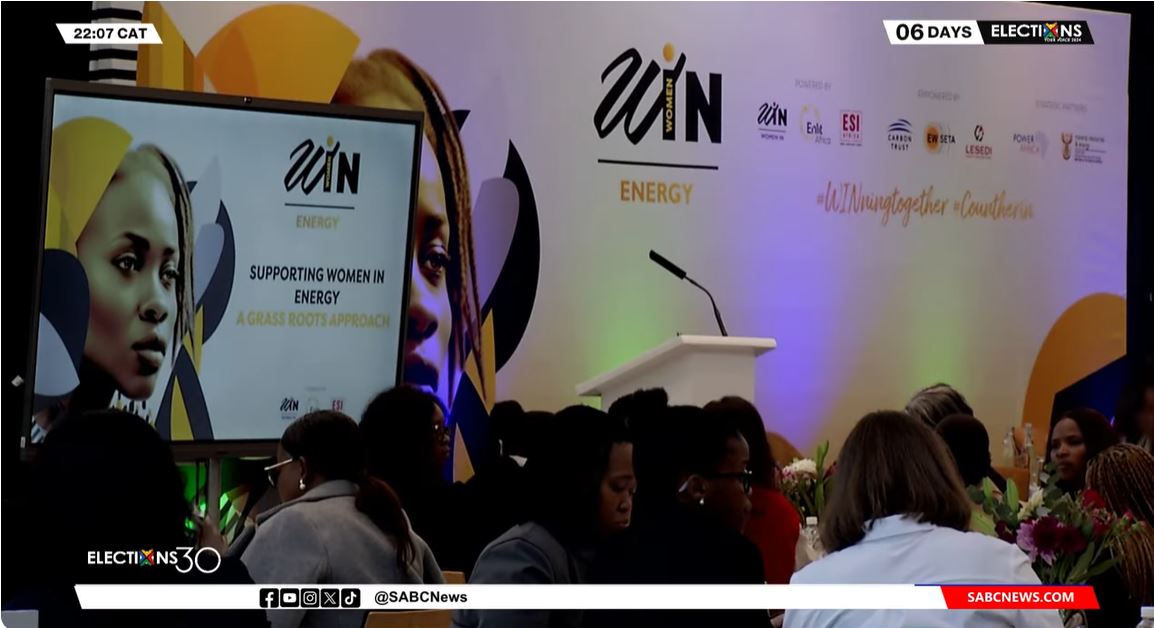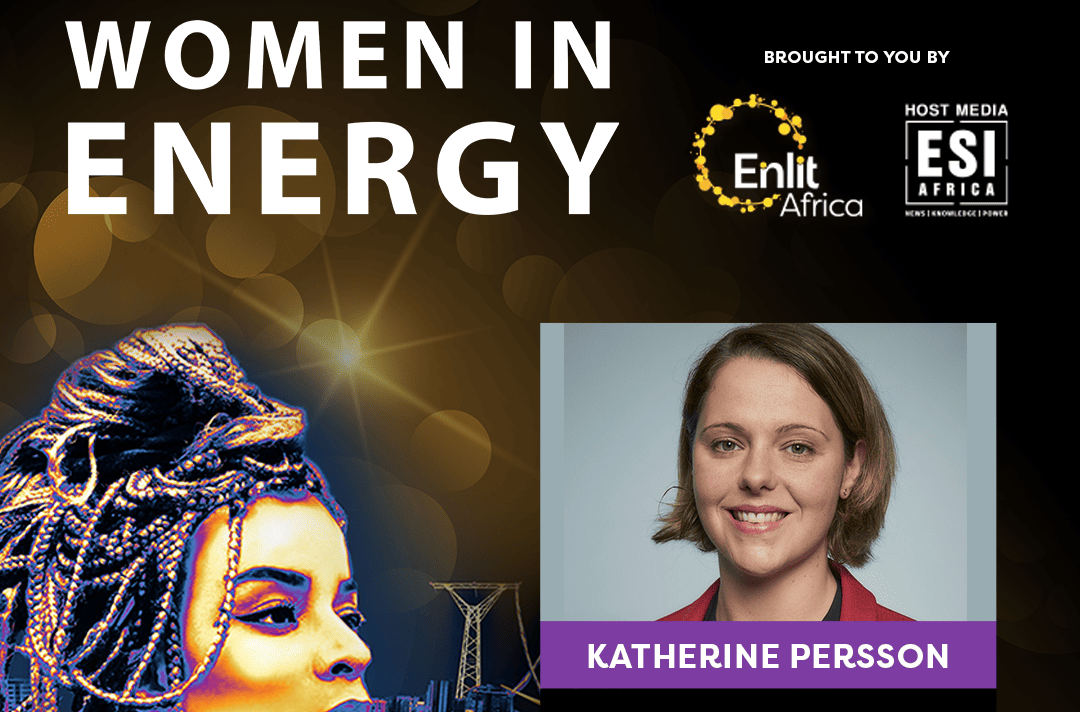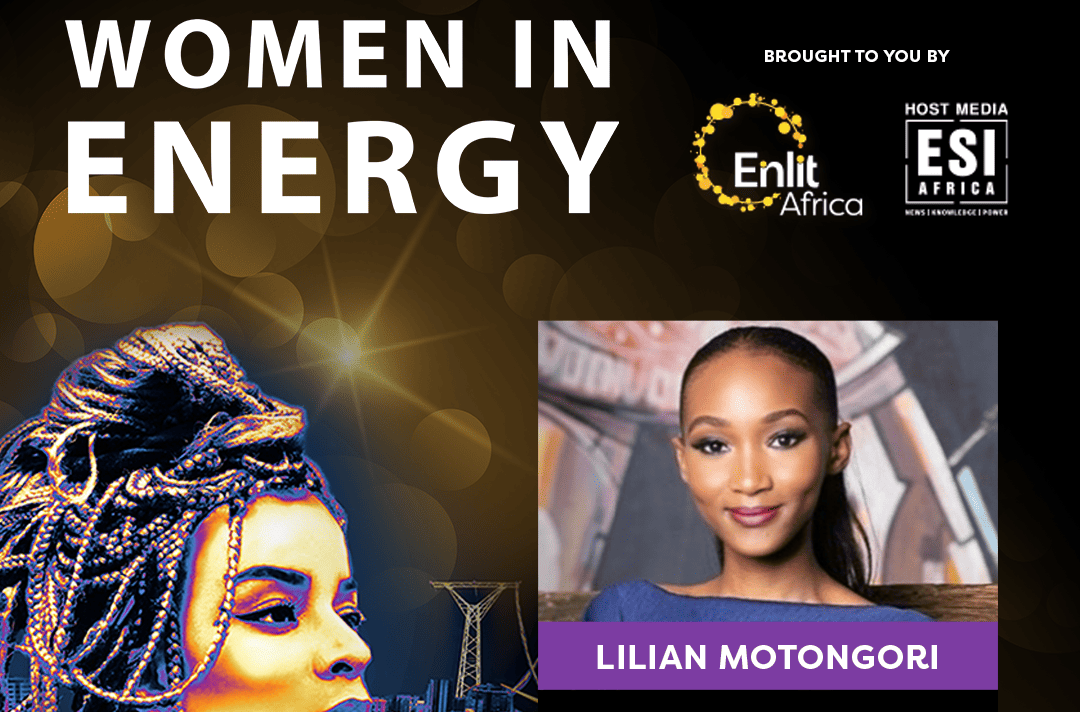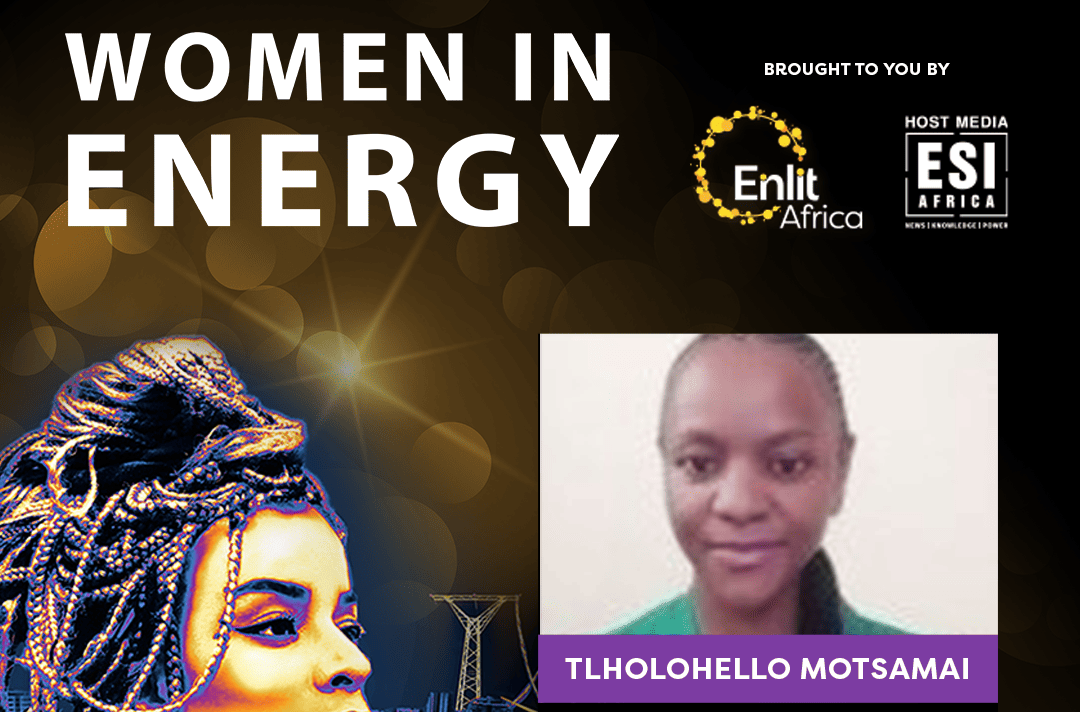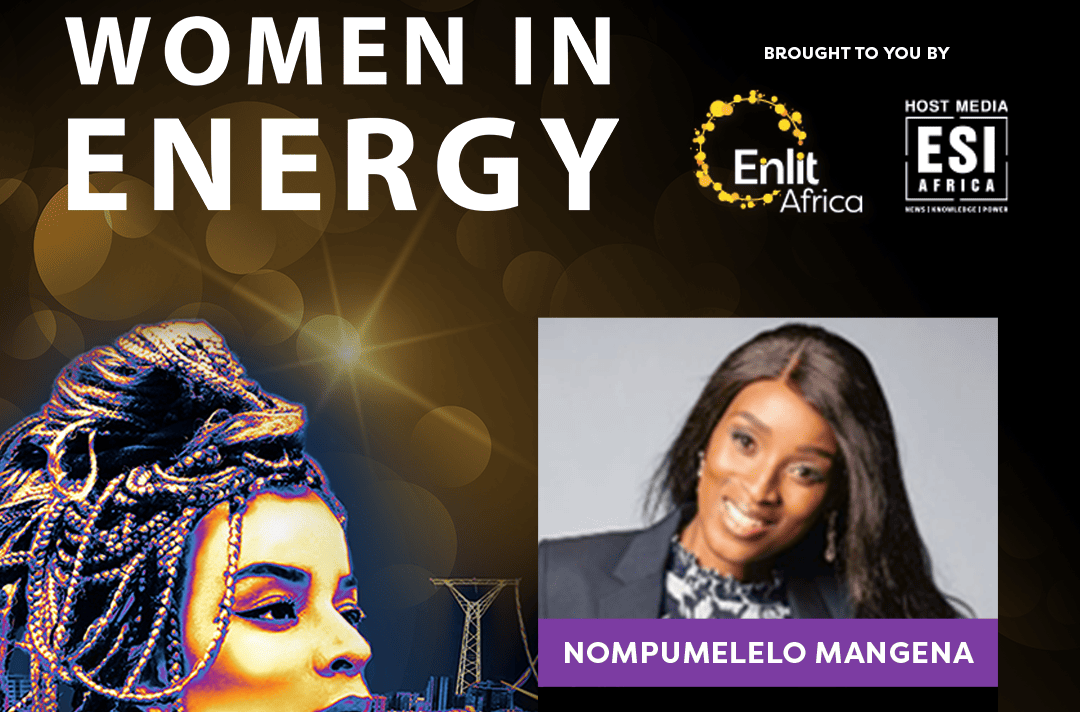Women in the power and energy industry need to be empowered in business so that policies and strategies represent their needs, says Elizabeth Marabwa, Chief Director at South Africa’s Department of Mineral Resources of Energy.
To kick off Day 2 of Enlit Africa 2023, women and men across the energy value chain gathered at the Women in Energy Breakfast to discuss pertinent issues surrounding the inclusion of women in the power and energy sector.
The aim of the session, supported by the Energy Council of Canada, was to consolidate the collective experience, influence and positioning of women in the industry.
Nthato Minyuku, Africa Head of Government Affairs at Siemens Energy, said that this was “to make sure that our daughters, our nieces, our grandchildren are not being pioneers the way most of us are being pioneers now.”
The role of policy-making in women empowerment
During the session, Marabwa touched on the value of policy-making in creating space for women in the industry. She emphasised that it is critical and strategic for women to be included in decision making so they can weigh in on what is just/fair for women.
“It is important for women that when papers and policies are sent out for comment, you participate so that we include your voice and represent [women],” she said.
Have you read?
Chioma Ewurum unpacks the unique opportunities for women in renewable energy
Pointing out the structural issues that exist which exclude women from participating, Marabwa said that women in policy must be spokespeople for women without a platform and leave no one behind. “We are the change agents,” she said.
“We need to make sure that we capacitate and reskill everyone who is affected so that we include all women… We need to make sure that our policies and strategies have [women’s] voices and are gender-sensitive,” Marabwa added.
Creating spaces to be led by women
Raksha Naidoo, Chairperson of Women in Mining South Africa and CEO of the Particle Group, said women are objectively better leaders as they lead with empathy and a holistic mindset which bring about great change.
Naidoo also pointed out that there are things that can be done from a Just Energy Transition perspective that can create space for women.
“It has become so important in any industry that the conversation takes place with the right people around the table and the opportunities are given to the right people who can bring about change,” Naidoo added.
“If we don’t start changing our way of thinking and our narrative, no change is going to happen,” she said.
“It has become so important in any industry that the conversation takes place with the right people around the table and the opportunities are given to the right people who can bring about change,” Naidoo added.
“If we don’t start changing our way of thinking and our narrative, no change is going to happen,” she said.
Of interest to you
When last did you see a female electrician?
Recommendations for Women in Energy
Closing off the session, Phemelo Mitchell, Head of Renewable Energy Business Development at Sasol, said that it is time for women in the energy and mining space to find other women who pull them up and empower them.
She encouraged women not to shy away from networking, but rather to build their platforms through interactive networking spaces and to take an influential role in ensuring that gender inclusivity can be impactful.
Have you read?
Ed’s note: Act on the gender wage gap to fully embrace Women’s Day
Mitchell also said that allies of women and women themselves need to advocate for family-friendly policies so as not to give discrimination breeding room in the workplace.
“You will never be ready for anything, but you must make yourself ready by aiming and thriving to be in those leadership positions,” she said.
Lastly, she added that women need to celebrate each other’s achievements to uplift and empower each other because creating gender-inclusive workspaces requires a collective effort. ESI

Bio
Katherine is a renewable energy enthusiast with a remarkable track record of over 18 years of professional experience. Throughout her career, she has been at the forefront of creating and expanding renewable energy businesses and teams, predominantly in Southern and East Africa. Her expertise spans various crucial areas, including project development, project finance, project management, environmental management, stakeholder engagement, and asset management.
Graduating with degrees (BSc Hons and MSc) in 2003 and 2004, Katherine later complemented her specialist skills with valuable business acumen. In 2016, she graduated with distinction, earning an MBA from the prestigious University of Stellenbosch. This comprehensive knowledge has proven instrumental in her success as a leader in the renewable energy sector.
Katherine has enjoyed exposure to executive responsibilities in her corporate roles and has demonstrated her commitment to the industry by serving on the boards of the South African Wind Energy Association (SAWEA) and the South African Renewable Energy Technology Centre (SARETEC). She is a qualified director under the Institute of Directors in South Africa (IoDSA), further underscoring her commitment to professional excellence and governance.
Currently, Katherine holds the position of Head of SOLA Assets Pty Ltd at SOLA Group. In her role, she leads SOLA’s Project Development and Project Finance teams, as well as overseeing the Asset Management division. SOLA Group is renowned as South Africa’s leading provider of Solar PV and Battery Energy Storage Systems (BESS) under Corporate Power Purchase Agreements (CPPAs), with a particular expertise in large wheeling transactions. Prior to her time at SOLA, Katherine spent a decade working for the international wind energy developer, Windlab.
Katherine actively champions diversity and inclusion in the energy sector. She is a mentor to women in the industry, and an advocate for increased representation of women in executive positions. Outside her busy professional life, Katherine finds joy as a mother of two and is a renowned endurance open water swimmer, demonstrating her determination and tenacity beyond the boardroom.
Personal Questions
In your position at SOLA Group, what are you doing to support the careers of other women in the municipality?
At SOLA Group, we embrace the imperative of enhancing women’s development and promoting diversity, especially in our senior leadership positions. Our commitment to this cause is exemplified by our tailored women in leadership development program, which provides comprehensive business coaching to our talented female team members. Through this initiative, women in our organization engage in direct conversations with our executive team, actively shaping the future of our business.
Aside from our internal activities we also promote female development and empowerment in our projects. One example is that we are currently constructing two large solar PV plants where we have surpassed our own targets for the percentage of women in the workforce, with over 30% of the employees on site being female. It’s great to visit our site and see young women in positions of responsibility, supervising teams and providing top quality professional services in the construction sector.
In your opinion, why do you think the energy sector in its current state has less female representation and do you see it increasing?
The energy sector, like many other industries, faces a gender representation imbalance, particularly at senior and executive levels. Overcoming centuries of entrenched institutional and societal systems that limited diversity is an ongoing challenge. However, the encouraging part is that times are changing rapidly.
South Africa’s green energy industry stands out as a beacon of progress, actively fostering more opportunities for women. This positive shift is evident in the increased representation of women in senior management and executive teams across public, private, and non-profit organizations. Seeing this transformation is really exciting!
As we move forward, my hope is that young women considering a career in the renewable energy sector recognize the expanding space for them to thrive and contribute significantly. Times are evolving, and the path is becoming ever more exciting and promising for women seeking fruitful and rewarding careers in this dynamic field.
Industry Question
What recent legal or regulatory changes do you think have the potential to make a positive impact on energy access in Africa?
In South Africa, recent regulatory changes (specifically the lifting of the licensing cap by the energy regulator) have paved the way for exciting projects that provide renewable energy to corporate buyers under private Power Purchase Agreements (PPAs). The grid-connected renewable energy market was dominated by government-led procurement until late 2021, when SOLA Group entered into the first corporate PPA with wheeling, where SOLA sells renewable energy to Amazon and delivers this from a 10MW renewable energy plant in the Northern Cape, to Amazon’s facilities in Cape Town.
Since this breakthrough, SOLA’s success has soared, with the completion of financing and initiation of construction for two 100MW solar PV projects in late 2022, followed by another 100MW PV project in early 2023. Furthermore, 2023 also witnessed the conclusion of the first corporate PPA projects by IPPs involving wind energy.
These achievements signal the rapid opening up of the renewable energy market in South Africa and serve as a promising example for other African countries to follow suit. With the recent approval of the first license needed for the creation of a new National Transmission Operator by the energy regulator in South Africa, the stage is set for rapid market evolution. This creates diverse opportunities for both small and large businesses to play a vital role in resolving the South African energy crisis.
This ongoing transformation opens up numerous prospects for women-owned and women-led enterprises to participate in this crucial sector. Moreover, it presents young women with ample opportunities to enter and thrive in the renewable energy field, contributing to the development of a more sustainable energy future in the region.
| Co-Founder & Director of Strategy at Hayili Africa | Scholar/ Werkstudentin at Schneider Electric
Bio
Lilian Motongori Jamunga is an energy expert and currently a Young Industry Leader scholar with Schneider Electric Europe operations while taking her Master’s in Energy Management at the Technical University of Berlin in Germany. She has a bachelor’s degree in Mechanical and production engineering. She has 6-year experience in the energy industry and is one of the Directors for Hayili Africa, an energy company that is offering energy solutions in Africa. Hayili Africa does research, energy management, project development, and technical advisory on energy projects among other energy solutions. She is also the current President of the Society of Women Engineers East Africa region and the co-founder of Women in Energy Africa, a platform for young women who offer innovative technological challenges for Energy in Africa.
She is a Global Bioenergy Energy Award winner in 2021 for her innovation of a mechanically driven biodiesel reactor, a 40 under 40 Inspiring African Future Mechanical Engineers (IAFME) Award winning er 2020, A Nominee for the Founder of the year Under 30 (Kenya) 2020 awards, A Booking.com Technology Playmaker Awards, Champion for change category Finalist 2020 and the Women in Energy East Africa community, professional technical award winner 2019. She was a Techwomen emerging leader in 2019 and a Woman in Africa Power fellow in 2019. She has been involved in leadership, energy, and gender issues. She is passionate about Sustainable development, Energy, women’s empowerment, and leadership
Q&A
How did you end up in the energy sector and what advice would you give to other women wanting to follow a similar career trajectory?
I studied Mechanical and production engineering and during my fifth year, I was introduced to the topic of renewable energy. I found it interesting and started following content that related to Energy as well. Having a passion to see development in Africa, I understood how important energy is in accelerating the industrialization and development of my continent. However, with climate change, it is sustainable to use clean and renewable energy. I purposed to pursue a career within the energy sector and was intentional and lucky to connect with professionals in the space who gave me an opportunity to also develop and grow my career. would encourage any other woman willing to join the sector to stay updated on the global issues in the sector as well as connect and position yourself to bring value to whatever position you get into. It is also important that they network with other professionals and continue to develop their skills to gain more opportunities.
In your opinion, why do you think the energy sector in its current state has less female representation and do you see it increasing?
The energy space has less female representation because there were existing stereotypes and biases that made the industry to be male-dominated just like any other sectors that were male-dominated traditionally. This discouraged many women from joining because of a lack of role models and enough mentors. Coupled with other barriers like education, workplace discrimination, and certain perceptions of physical demands in the field, the number has been less. However, the narrative is changing with more women getting access to education and policies and programs that encourage diversity in the workplace which is a good thing.
If you could have tea with any public figure – dead or alive – who would it be and why?
Damilola Ogunbiyi the CEO of SE for All. Her professional career and impact in the energy sector have been impressive in championing sustainable and affordable energy for all especially Africa and she inspires me a lot.
What does being a woman in the energy sector mean to you?
It means a lot to participate in shaping the industry to attract more other women and bring a diversity of thoughts that also cater to women using energy globally.
What opportunities do you see in Africa’s energy market?
Africa has a lot of opportunities to be a global leader for renewables in the whole world. We have a huge potential for solar and hydropower as well a lot of natural gas that can be used as we transition to clean energy. Our low carbon emissions also enable to trade well with other developed nations as we try to achieve the global climate goals. We also have the ability to leapfrog our energy infrastructure to more efficient technologies that are required in the clean energy transition.
Bio
I have a decade plus experience as a business development and marketing executive with a demonstrated history of working in the financial sector (banking), construction material supply, the built environment industry (Architecture & Townplanning) and the energy sector.
Academically, I have an IT qualification which I have never used in my career and have rendered the qualification obsolete as mine has always been a flair towards sales and marketing. I have completed the Management Development Programme through the UFS Business School, various online training programmes through the RENAC Renewables Academy and currently a trainee with the institution for the Energy Transformation Expert Programme (EnerTracks). I am also the representative for the RENAC Green People’s Energy for Africa Alumni Network (ANSAP) and my ultimate academic goal is to pursue an MBA in Renewable Energy through the Alma Mater the RENAC Renewables Academy.
I am passionate about gender advocacy and out of passion, excitement and frustration, founded SHE in Energy Africa (NPC) which seeks to narrow gender disparities in the energy sector through skills development and training and to accelerate women’s role not only as professionals but as entrepreneurs in the energy sector. The highlights in my gender advocacy journey, was serving as the country chairperson of African Women in Energy and Power and for being one of the first cohort to participate in the WE Connect Mentorship supported by SAPVIA and SAWEA.
My favourite qoute and also my credo is by Oprah Winfrey; the best deterrent to racism and sexism is through excellence.
Questions
How did you end up in the energy sector and what advice would you give to other women wanting to follow a similar career trajectory?
I matriculated back in 1999. “IT” (Information Technology) was the buzzword, and inevitably, in 2000, I enrolled in an IT Diploma, a qualification I have rendered obsolete as I have never used it in my entire career. Interestingly, it was while I was working at the institution on a part-time basis as a student advisor that I discovered my love for sales and marketing. Fast forward to 2003, I landed a job in the financial sector at ABSA bank as a retail sales consultant. After 3 years with the financial institution, I decided to leave my hometown, Bloemfontein, and relocated to Johannesburg, looking for greener pastures.
Completely by chance, I was introduced to the energy sector/solar industry where I worked as a sales representative, marketing, and selling solar water heating systems at the company Solar Heat Exchangers. While at the time, I didn’t envision staying long in the industry and ultimately building a career as an entrepreneur, gradually I fell in love with the idea that water could also be heated using the sun/solar energy generated through panels. At the same time, preserving the environment due to renewable energy technologies being less carbon-intensive. As the saying goes, the rest is history.
In your opinion, why do you think the energy sector in its current state has less female representation and do you see it increasing?
I think the perception that one has to come from a technical/engineering background, and rightfully so, I suppose, as the sector is highly technical, is also a contributor to the lesser female representation in the sector and industry. And again, this is where the importance of introducing, educating, and exposing such sectors, industries, and career opportunities, particularly to the HDI, is very important. On a positive note, I strongly believe we are going to see more participation by women, whether as professionals or entrepreneurs, in the sector and industry, thanks to policies supporting gender equity and mainstreaming in both the sector and industry.
If you could have tea with any public figure – dead or alive – who would it be and why?
So, I have a great love for music, something I got from my folks, with quite an eclectic taste. Nina Simone and Miriam Makeba are the two women I would want to meet with, I think we could start off with coffee and later wine, because there would be so much to talk about, not just musically but politically. I love how they both used their gift as musicians for a bigger purpose, which was political activism. It’s something I myself used to be very passionate about but have toned down as I grow older.
What does being a woman in the energy sector mean to you?
Being a woman in the energy sector, for me, means working twice as hard as my male counterpart. I feel that one constantly must prove oneself, not only just to be seen but also to be heard. This is very important to have a voice in the sector and industry, not just on issues of gender but also on sector developments and challenges.
What opportunities do you see in Africa’s energy market?
The African continent, which is endowed not only with minerals but also with energy sources, whether it’s solar, wind, or gas reserves, presents a plethora of opportunities that could boost the continent’s economy beyond what we could imagine possible as Africans and as a unified unit. This is achievable only if the continent is well governed.
Bio
Nompumelelo (Mpumi) Mangena is the Senior Sales Manager for GE Vernova’s Steam Power business in Sub-Saharan Africa. GE Vernova’s Steam Power business offers a broad portfolio of technologies and services—predominantly for nuclear and coal power plants—helping customers deliver reliable power as they transition to a lower-carbon future.
Mpumi joined GE in 2012 as a Sales and Services Manager for its power portfolio. Prior to GE, she was a System Engineer at Eskom Matla and Kelvin power stations. She has acquired over 17 years in experience working in the energy industry locally and internationally. Her experience spans through the private and public sector with a combination of system engineering, business management, sales and marketing background and a key focus on stakeholder management. This experience has allowed her to develop a strategic set of contacts and relationships across the private sector as well as within government.
Mpumi earned a Bachelor of Technology degree in Mechanical Engineering from the University of South Africa. She just completed a Post-Graduate diploma in Coaching with the South African College of Applied Psychology.
She is an energetic, positive, and strong individual that will take lead in almost any situation. She currently resides in Pretoria with her adorable 7-year-old boy and supportive husband. When she’s not working you will find her playing Golf, traveling, coaching and mentoring aspirant and early-mid career professionals.
Questions
What are some of the major changes you’ve seen during your time in this industry?
I have seen more women joining the sector, seen them taking leadership roles, and I have unfortunately seen women leave for several reasons including environment readiness and lack of support. Develop a welcoming and inclusive workplace culture that promotes opportunities for advancement and flexible work arrangements to encourage entry and retention into the sector.
What message do you have for other women entering a male-dominated sector?
The industry is difficult, but you are not alone. There is a strong community of women you can reach out to in the sector for advice, community, and support. Embrace your strengths, build your knowledge of your specific industry, network, and constantly advocate for yourself.
How do you hope to see women more included in the energy sector?
By intentionally recognizing women as capable participants in the sector not as affirmative statistics. We need to identify, recruit, hire, train, promote and retain on merit. This will go a long way in including and expanding the sector to women.
In your opinion, why do you think the energy sector in its current state has less female representation and do you see it increasing?
I don’t believe it is increasing. I think the industry is not glamorized like other industries due to gender stereotypes and traditional societal norms which have influenced the perception of what roles are for women. Technical and engineering roles have traditionally been seen as roles designed for males. Many of the opportunities are in STEM (Science Technology Engineering Mathematics) and the underrepresentation of women in STEM creates difficulty in building and developing a pipeline. If we do not deliberately create spaces and accommodations to invest in bursaries targeted at females or apply visible mentorships to aspiring learners, representation will not increase. The struggle to strike work-life balance due to the constant requirement to be available at all times is another barrier to achieving the representation we want to see.
How do you think men can support a more equal workplace as well as help accelerate women in their careers?
We cannot leave men behind in the advancement or inclusion of women in the sector. In my experience I have seen men supporting the acceleration of women. It starts with the education and awareness of men around issues that affect women so men can understand their predisposed privilege, identify and confront their unconscious biases.
What is the most important conversation we should be having in the sector?
How to open up the sector to have greater participation for women within energy. The discussion should be centred around how we create stronger PPP (Private-Public-Partnerships) to build and support SMEs. On a micro level, we should also be discussing how to improve work environments and manage the high level of work pressures to achieve the best results.
What opportunities do you see in Africa’s energy market?
The recent BRICS summit in SA has shown an increase in the appetite for stronger geopolitical ties between Africa and China. China has pledged R500m to assist the energy crisis in South Africa, this provides opportunities for funding which have been a challenge for African projects. Energy access offers a great opportunity as a significant population still lacks access to electricity. This gap represents an opportunity to implement off-grid mini-grid systems and distributed renewable energy projects to provide power to remote and underserved areas.
- 1
- 2
